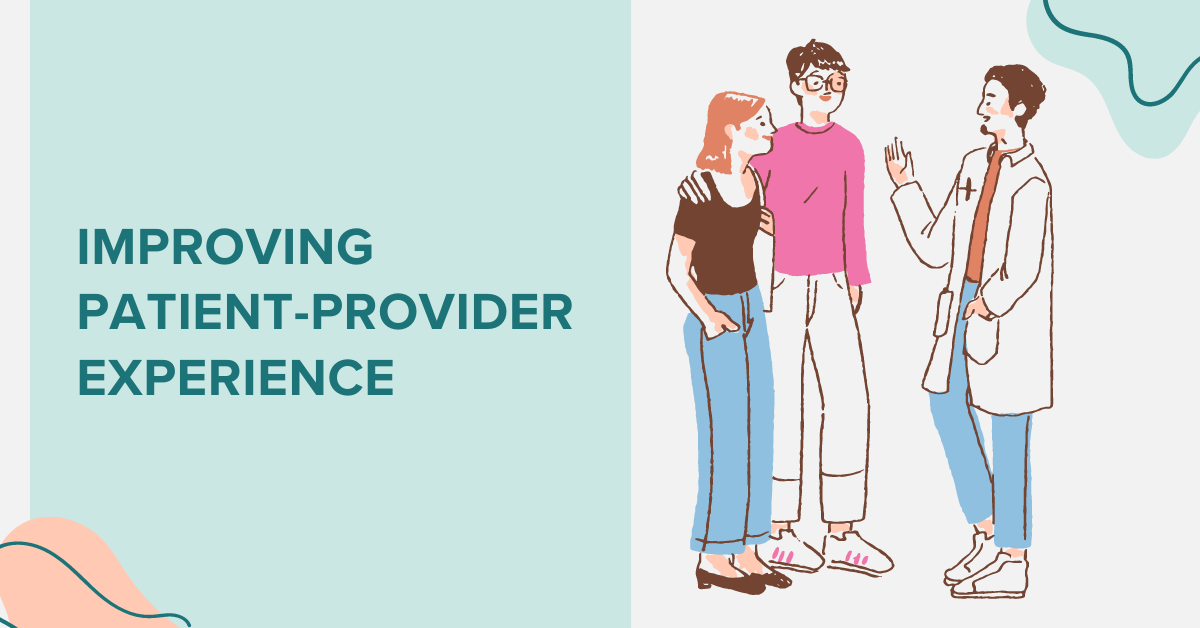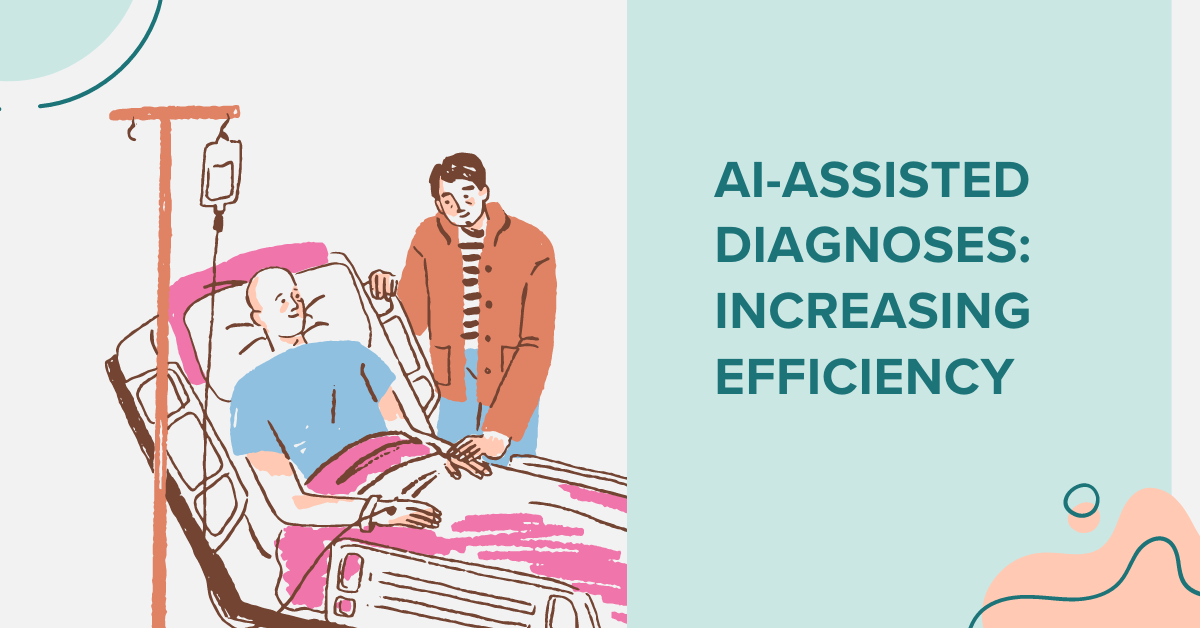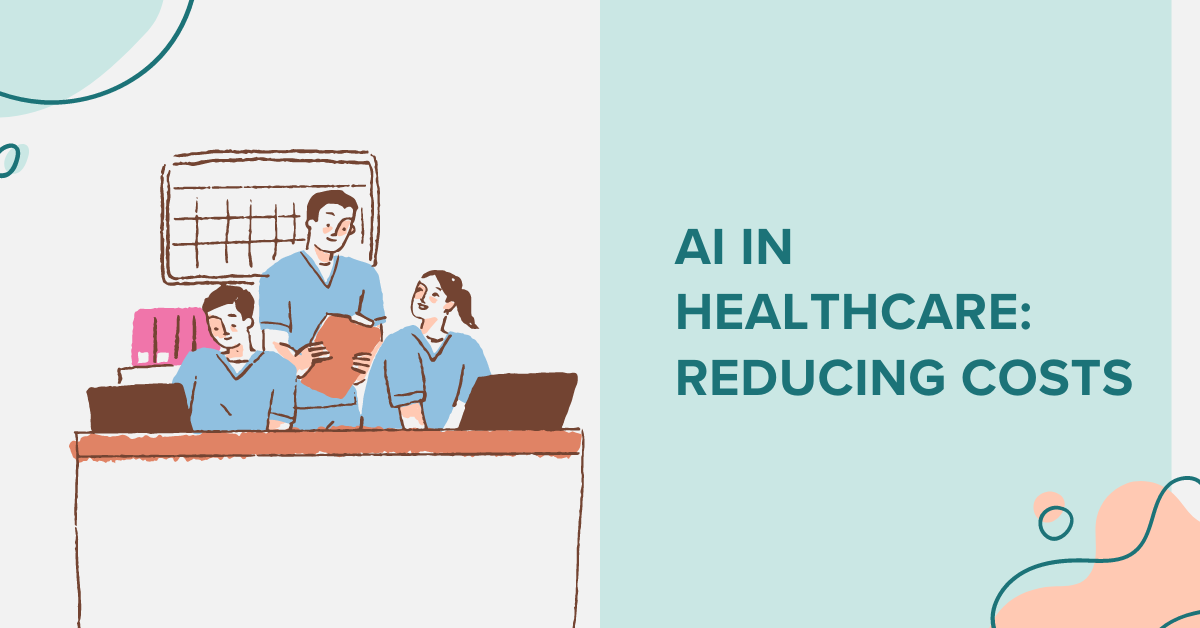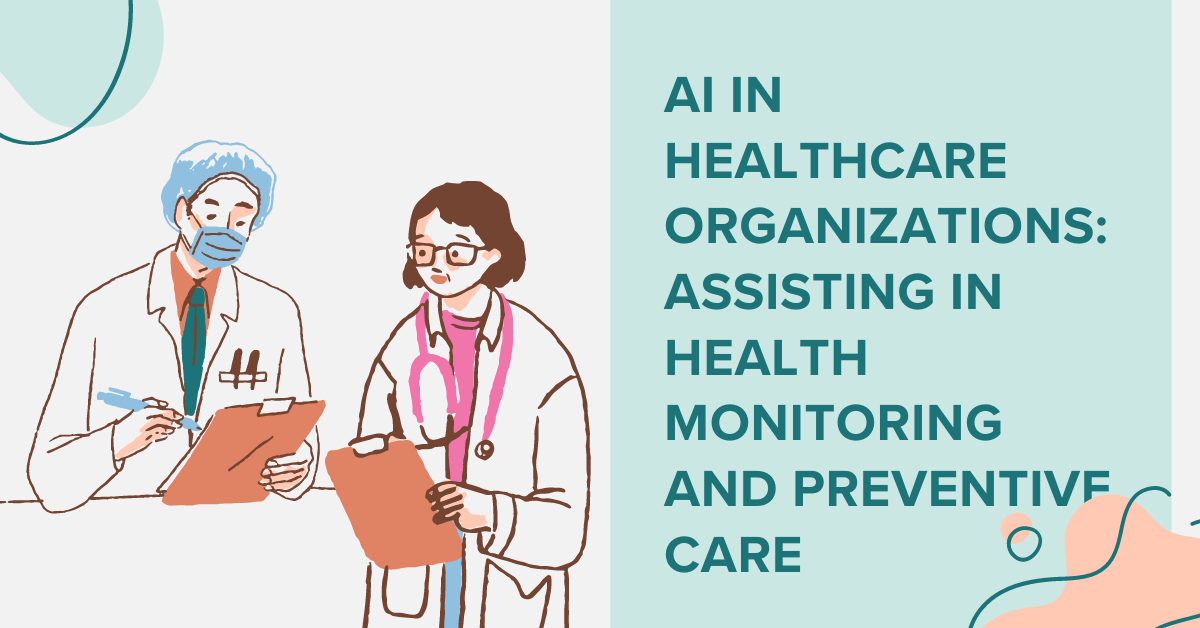AI in healthcare continues to evolve, and its uses are worth recognizing as they improve patient care, speed up diagnoses, and facilitate faster healthcare delivery. Learn more in this post today!
Valued at $16.3 billion in 2022, the global artificial intelligence market in healthcare continues to grow at a rate of 40.2% CAGR and is predicted to reach $173.55 billion by 2029.
Artificial intelligence has become more efficient and sophisticated in supporting medical professionals, surgeons, and doctors, improving treatment outcomes, and enhancing patient experience.
It can do much in a shorter time than a human could, and it shows no signs of slowing down. Thus, artificial intelligence technologies and their use in the healthcare industry are worth recognizing.
So, what are ways that AI can improve healthcare delivery? Let’s discuss this in the following.
What Is Artificial Intelligence in Healthcare?
AI in healthcare uses natural language processing, machine learning, and deep learning technologies to improve the provider-patient experience.
AI’s data processing, predictive, and analysis capabilities allow healthcare providers to manage various resources and be more proactive in healthcare approach and delivery.
AI technologies assist healthcare providers, including clinicians, surgeons, and doctors, in making more accurate and quick diagnoses, patients receiving a more personalized treatment approach, and healthcare admin staff managing and locating electronic records faster.
AI simplifies the lives of patients, doctors, and hospital admin staff by handling and performing tasks that humans typically do—but at a fraction of the cost and in less time.
1. AI Healthcare: Improving Patient-Provider Experience

A KLAS study discovered that 83% of patients rated poor communication as the worst part of their experience in 2020. AI can significantly enhance patient-provider correspondence, streamlining every patient touchpoint and positively impacting the value and credibility of practice.
Technologies, including predictive analytics, speech recognition, and natural language processing, can facilitate effective and efficient communication and the proactive and safe use of patient data.
For instance, AI can communicate with patients, improving the doctor and patient experience through effective communication.
Artificial intelligence can also deliver particular information about treatment options, helping doctors and healthcare providers create meaningful conversations with patients.
AI for digital communications can also offer personalized health tips, schedule reminders, and recommend next steps. Its ability to assist in diagnoses can improve the accuracy and speed of patient visits, leading to personalized and faster care.
With enhanced communication, clinics and hospitals can treat more patients daily.
2. AI in Telemedicine: Healthcare Access for More People
In-person visits to the clinic or rehabilitation center can be challenging for patients with comorbidities or those who live away from a healthcare facility.
AI telemedicine in visual patient education can be the answer.
For example, pulmonary care patients never have to worry again about the inconvenience of traveling to the rehabilitation center or disrupting their routines.
AI virtual care offers convenience. It provides patients with remote access to care and rehabilitation programs using digital tools and telehealth technologies, allowing them to receive guidance, monitoring, and support from healthcare providers right in the comfort of their homes.
For example, facilities can use AI avatars to create rehab exercises for their pulmonary patients with chronic lung conditions so they can train at their own pace and time.
3. AI-Assisted Diagnoses: Increasing Efficiency

According to Harvard's School of Public Health, using digital health technologies might reduce treatment costs by up to 50% and improve outcomes by 40%.
AI doesn’t sleep; thus, machine learning models can observe a patient’s vital signs when receiving critical care and alert doctors and clinicians if they spot increased risk factors.
AI can also collect data from medical devices like heart monitors and detect even more complex conditions.
Moreover, according to a study by the University of Hawaii, deep learning AI technology might help predict cancer risk. While more research is needed, it is possible that AI can be trained with more extensive, maybe millions, of images, better than a radiologist.
4. AI in Healthcare: Enhancing Operation Efficiency
One of AI's benefits is improving operation efficiency and freeing healthcare workers from mundane administrative tasks, allowing them to spend more face-to-face time with their patients.
AI can also assist clinicians in note-taking and summarization, keeping medical records neat and thorough. In addition, it helps in precise coding and information sharing between departments, including the billing department.
Then, there are AI nurse assistants or AI-powered apps and chatbots that answer patient questions about medications. Moreover, these AI assistants can forward reports to surgeons and doctors and help schedule a patient’s clinic visit.
Without even saying it, artificial intelligence can take the burden off staff's shoulders and allow them to interact with patients where human judgment is needed.
Another area where artificial intelligence benefits the healthcare industry is fraud prevention.
Patients, medical providers, and others can commit healthcare fraud by deceiving the system in order to receive illegal benefits and payments. This type of fraud costs $380 billion annually, leading to rising consumer costs on medical premiums and out-of-pocket expenses.
Artificial intelligence can spot suspicious and unusual insurance claim patterns, including unperformed procedures and expensive service billing.
In addition, AI healthcare can be used to identify errors in patients' self-administered medication. For example, it can monitor how a patient administers an inhaler and take note of them.
5. AI in Healthcare: Reducing Costs

As AI aids in quicker disease diagnoses, patients can save significant costs. For instance, artificial intelligence can sift through millions of images faster than humans.
Finding clues about diseases faster reduces the cost and time-consuming manual labor. Thus, fewer beds can be used because fewer patients will be admitted. That’s thanks to AI’s efficiency in improving patient care. And as it continues to learn, so does its accuracy.
6. AI Healthcare: Facilitating in Safer Surgeries
AI healthcare robotics are finding their way to the operating table, offering practical and specialized support to surgeons.
AI robots can improve surgery precision. They can work near delicate tissues and organs, reducing the likelihood of infection, the need for more sutures, and the severe postoperative discomfort.
In 2017, plastic surgeons at the Maastricht University Medical Center (Netherlands) doctors successfully sutured narrower blood arteries in a lymphedema patient using a robotic device. It’s the world’s first super-microsurgical intervention with robot hands, which the doctors used to suture blood vessels as narrow as 0.3 mm in the patient's arm.
7. AI in Healthcare Organizations: Assisting in Health Monitoring and Preventive Care

More people are using health trackers and analyzers to monitor health and fitness and share real-time data with their physicians. This allows the latter to monitor their patient's health issues while alerting them about problems.
AI can also help analyze large data sets, aiding decision-making and detecting diseases earlier.
Patients can now use health monitoring devices to receive feedback for themselves and their healthcare providers, who can gather, store, and analyze data sets from such wearables.
Hence, they can provide data-driven insights from more people, helping them determine better ways to treat and manage diseases.
AI Now and Beyond…
Artificial intelligence offers numerous opportunities to the healthcare industry. It creates smoother provider-patient communication, reduces human errors, speeds up diagnoses, and more.
As it develops, it becomes more precise, faster, and more efficient in performing numerous tasks, including analyzing health trends and patient data and assisting surgeries.
Stay tuned for the latest AI in healthcare developments!



